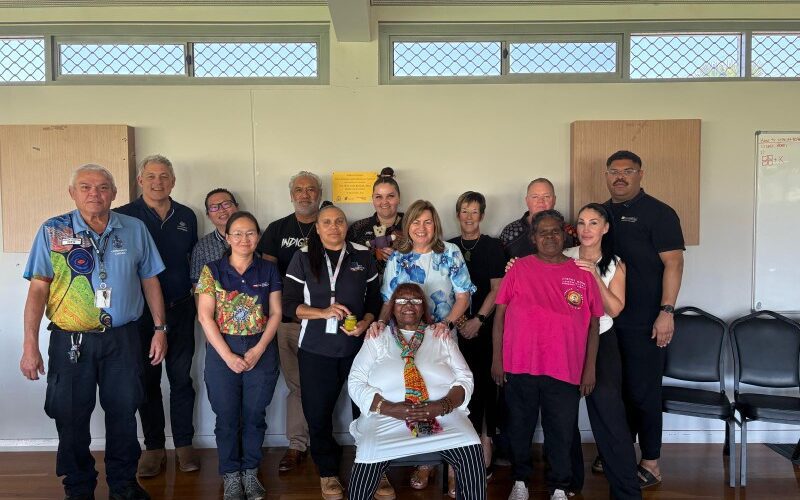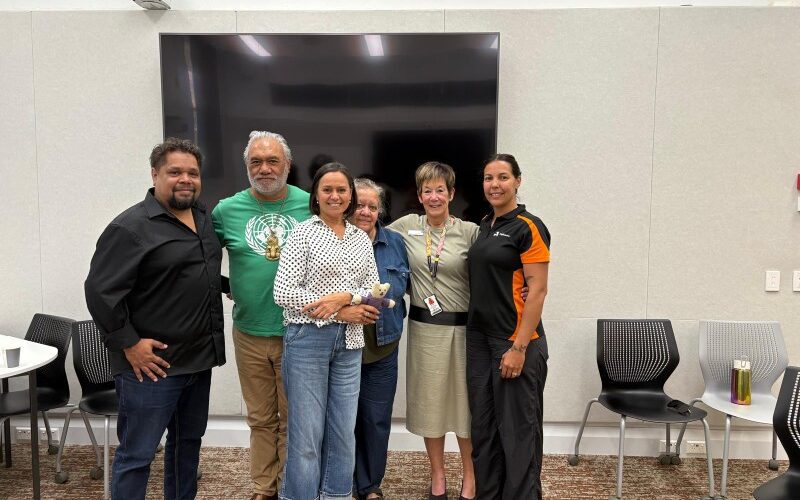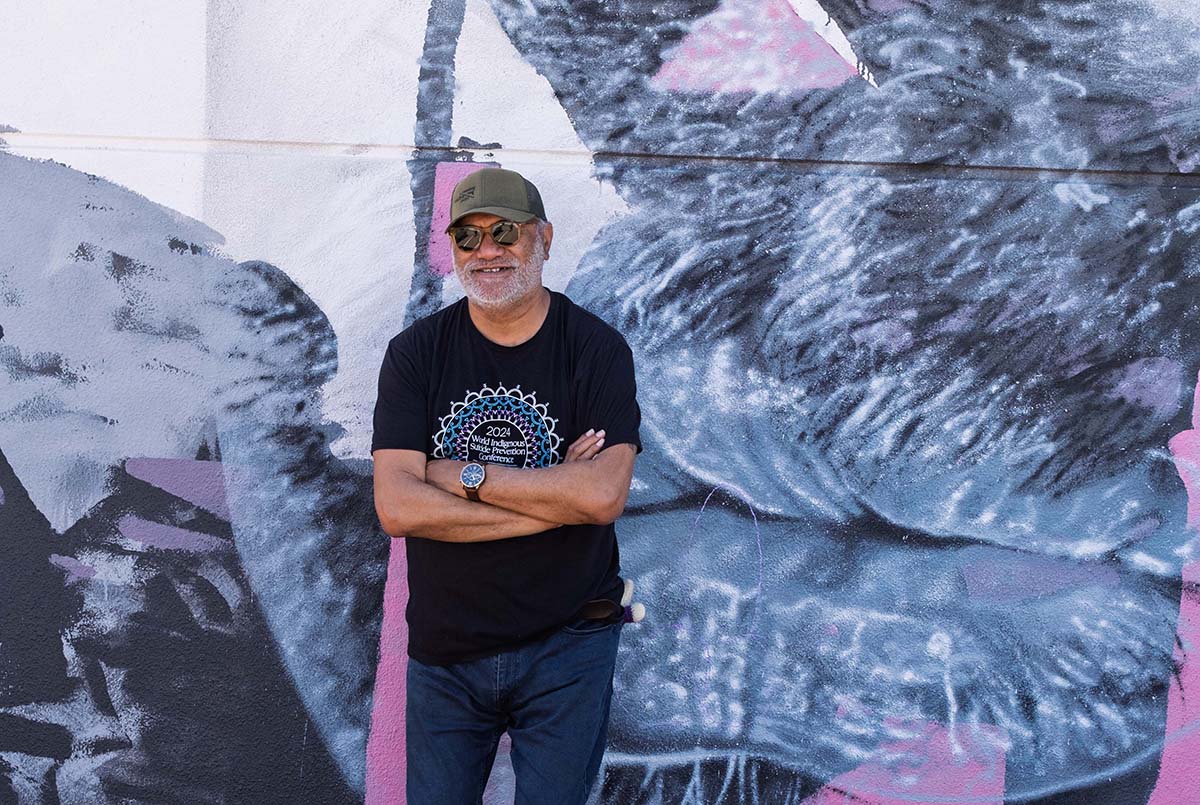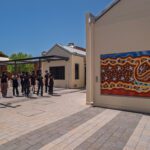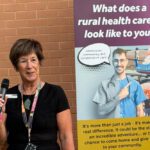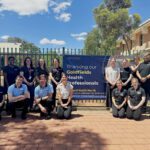During October, the Goldfields University Department of Rural Health (GUDRH) had the privilege of hosting Adrian Te Patu, a distinguished international leader in Indigenous health and public health decolonisation, for an intensive two-week visit that brought together health professionals, faculty, and community stakeholders in meaningful dialogue around transforming health education and practice.
Adrian brought a unique and powerful perspective to Indigenous health advocacy from his experience as Chair of the Indigenous Working Group for the World Federation of Public Health Associations, and is a notable advisor in public health, with particular expertise in Indigenous health.
During his time in the Goldfields, he joined GUDRH students on their Kalgoorlie Orientation and Cultural Experience, and met with the First Nations Council Eastern Goldfields and community representatives to ensure community voices remained central to discussions about health education and service delivery.
GUDRH staff took part in his workshop on data sovereignty, which addressed the rights of Indigenous peoples to control the collection, ownership, and application of their own data – an increasingly important issue in health research and practice.
His visit extended to Leonora, engaging with members of the region’s most remote communities and reinforcing the importance of understanding health education in rural and remote Indigenous contexts. At Curtin University’s Bentley Campus, he delivered his “Cog-Native Dissonance – Decolonising the Curriculum” workshop to the Faculty of Health Sciences.
His emphasis on Indigenous governance, data sovereignty, and genuine partnership challenges institutions to move beyond symbolic gestures toward substantive change.
As the GUDRH team builds on ideas from this visit, Adrian’s frameworks will guide authentic, community-led transformation in health education and practice while honoring Indigenous knowledge, centering Indigenous voices, and advancing health equity for Aboriginal and Torres Strait Islander peoples in the Goldfields and beyond
—
The GUDRH acknowledges and thanks Adrian Te Patu for his generosity in sharing his knowledge, experience, and vision during this his visit.
